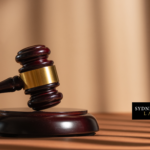Bill Shorten Suspected of Corruption

The Federal Opposition Leader has been featuring in the news recently – for all the wrong reasons.
He is before the Royal Commission into Trade Union Governance and Corruption, being asked to explain his actions when he worked as the Victorian and National Secretary of the Australian Workers Union.
Shorten is by no means the first politician to come under investigation by a royal commission, ICAC or even the courts.
In fact, the Commissioner has joked that Tony Abbott is making appearing at commissions a “rite of passage” for Labor Party leaders.
Of course, it is not only Labor leaders that have been under fire, nor just Federal politicians.
Last year, we saw Barry O’Farrell’s spectacular fall from grace as the Liberal party Premier of NSW.
Eddie Obeid, Julia Gillard and Craig Thompson are all examples of leaders who have been the subject of investigations – Thompson even being charged with criminal offences.
Shorten claims that the “politics of smear” have seen him hauled before the Commission. And Labor’s spokesperson Brendan O’Connor is reported as saying:
“Royal commissions are among the most powerful, high-powered investigative mechanism that we have in this country. Now three opposition prime ministers have appeared in front of it. There’s no question it’s a witch hunt.”
The Allegations
Shorten was asked to respond to allegations that he brokered deals between the union and businesses which did not benefit employees – indeed, some of the deals allegedly saw a company paid money in connection with a deal that left workers even worse off.
The Commission examined a deal between the AWU and glassmaker ACI, whereby ACI gave the union $480,000 over 2 years for “education and training”.
Allegations of fraudulent invoices for research that was never undertaken were raised during the two-day hearing.
It was also alleged that Shorten only declared the $40,000 he received during his 2007 electoral campaign last week.
What is a Royal Commission?
A royal commission is a type of independent inquiry that is used to investigate major or widespread illegal activity. Commissioners are often retired judges.
Although the royal commission is not a ‘court’, it still has a broad range of powers, including the power to compel witnesses to appear, and people can be prosecuted, convicted and sentenced as a result of the Commission’s findings.
Offences
While Royal Commissions investigate a whole range of corrupt activity, there are several offences that can be committed during Commission proceedings.
Those offences are laid out in the Royal Commissions Act 1902, and comprise:
1. Giving false or misleading evidence – which attracts a maximum penalty of five years imprisonment and/or a $20,000 fine;
2. Bribing a witness – maximum penalty of five years imprisonment;
3. Fraud on witness (deceiving a witness in order to affect their testimony) – maximum penalty of two years;
4. Destroying documents or other things – maximum of two years imprisonment and/or $10,000 fine;
5. Preventing a witness from attending – maximum of one year;
6. Injury to a witness – maximum of one year and/or $1,000 fine;
7. Dismissal by employers of witness – maximum of one year and/or 1,000 fine;
8. Contempt of Royal Commission (intentionally insulting or disturbing a Royal Commission, interrupting proceedings or using false/ defaming speech or words about the Commission) – the maximum of three months and/or $200 fine;
9. Unauthorised use or disclosure of information given at a private session – maximum one year and/or $3,400 fine; and
10. Offences relating to claims for legal professional privilege – maximum of 6 months and/or $1,000 fine.
Shorten before the Commission
Those hoping for Shorten’s explanation may have been disappointed by the two-day hearing.
He spent eleven hours answering hundreds of questions, but his credibility as a witness was called into question as he gave evasive answers to many of them.
Under questioning, Shorten admitted that he failed for eight years to reveal that a labour hire company paid the salary of his campaign for office.
The union of people he ostensibly represented were never told about the $40,000 given to him by Unibit, the labour contracting company.
Nor was the income disclosed to the electoral commission.
But Shorten denied betraying union members by engaging in dodgy deals and that there was ever a conflict of interest.
Outcome
Shorten reputation appears to be tarnished by his apparent evasiveness under questioning – and the investigation is not yet over.
The court of popular opinion is now in full-swing, with some including the former ALP national secretary Bob Hogg calling for his resignation.
Hogg declared: “Bill, do something for the ALP. It’s simple. Just go.” Ironically, Hogg was also in trouble decades ago for failing to disclose political donations. He ended up before the courts but was acquitted.
Predictably, the Liberal party is capitalising on the situation, launching a targeted campaign focusing on Shorten’s “weakness” as a leader, and his “baggage from knifing two sitting prime ministers.”
The consequences for the Labor leader remain to be seen.






